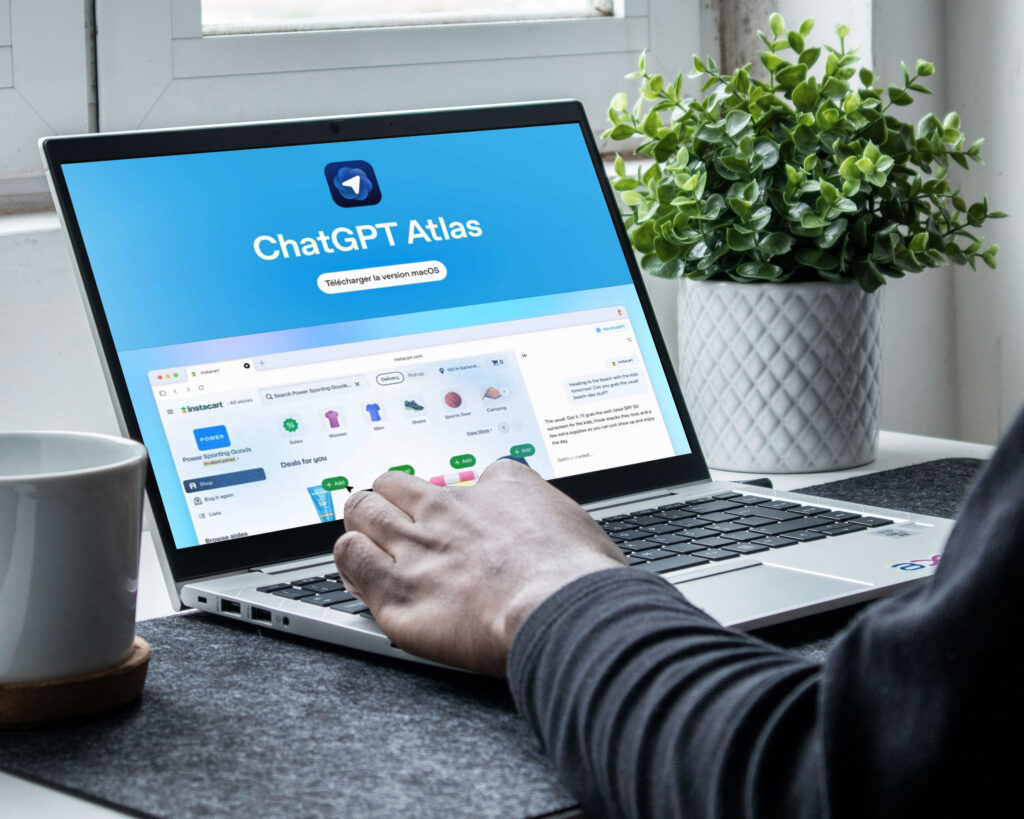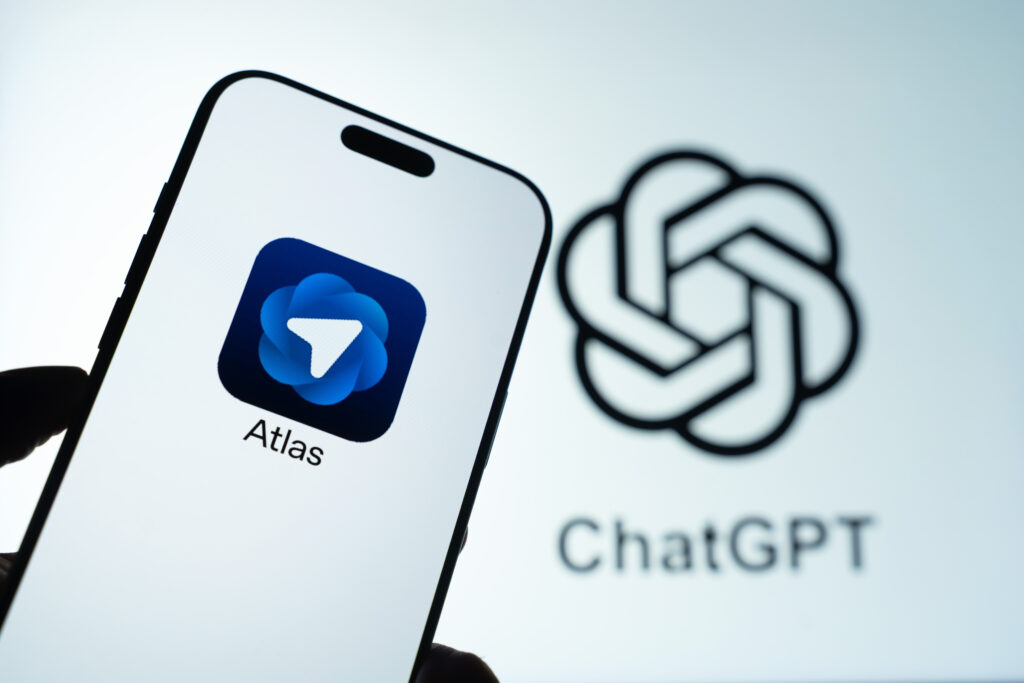
Atlas isn’t your typical browser. Unlike Chrome, used daily by more than half the world’s internet users, Atlas places ChatGPT at the centre of everything. Instead of endlessly scrolling through links, you simply talk your way around the web.
At least, that’s the idea.
OpenAI insists ChatGPT Atlas is the next big leap; a smarter, more intuitive way to explore the internet. A step closer to what it calls a “true super-assistant.” It’s an exciting vision, but like many AI tools today, the most powerful features sit behind a paid subscription.
And for the 800+ million people using ChatGPT, including thousands of businesses, this shift signals an important reality: AI-driven browsing won’t be free forever.
So, How Good is Atlas?
OpenAI invites users to “rethink what it means to use the web”. Visually, Atlas feels familiar: a clean layout, tidy tabs and a standard browser interface. However, here’s one big twist: a persistent sidebar where ChatGPT sits waiting patiently to help you.
Here’s what the interface actually looks like:

Here’s what Atlas did for me as I browsed:
“Can you tell me more about the Autumn 2025 UK Budget”
The Outcome:
- Brought together the main articles from reliable news sources so I didn’t have to jump between sites.
- Broke down the key information such as tax changes and policy updates.
- Grouped everything into clear sections (tax changes, growth outlook, spending measures) to make it easier to follow.
- Made it simple to compare what different outlets were saying about the same announcements.

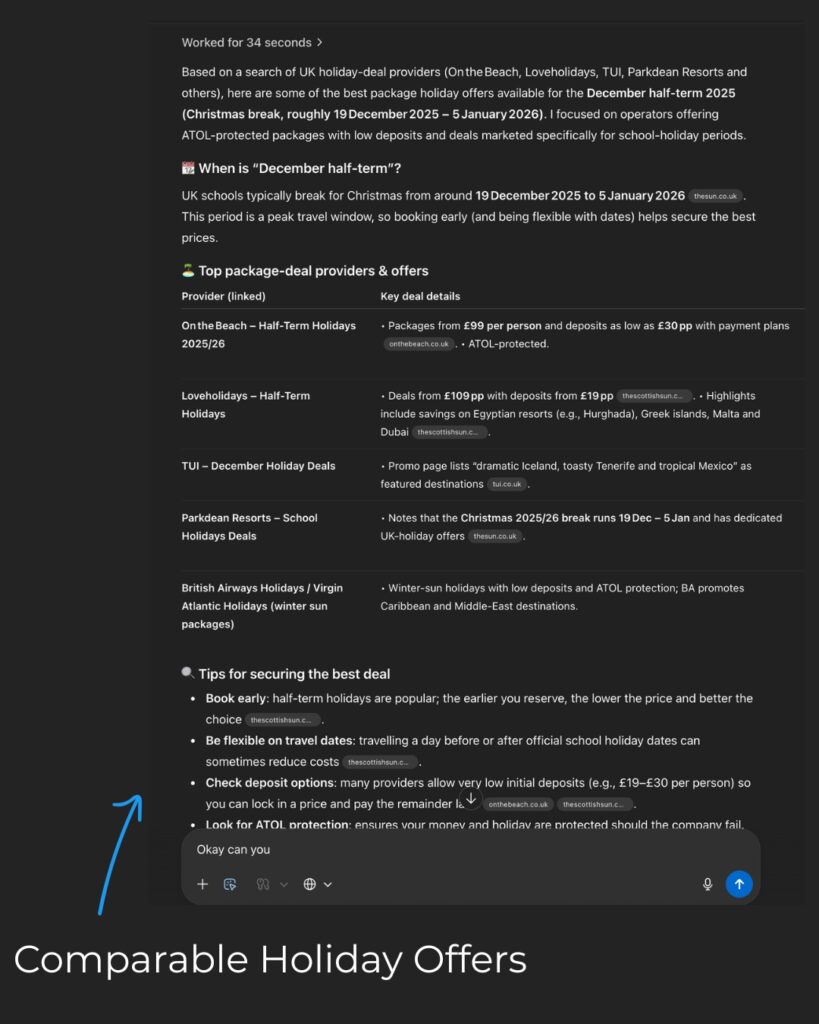
“I’m looking for the best holiday deals over December half term…”
The Outcome:
- Quickly pulled together the best offers from the big UK holiday providers I’d normally have to check one by one.
- Showed me packages starting from £99pp and even low deposits from £19-£30pp, so I could instantly see what fit my budget.
- Compared providers side-by-side for me
- Gave practical booking tips tailored to my situation: book early, check deposit schemes, be flexible with travel dates and look out for protection policies.
“What would be the best graphics cards in 2025?”
The Outcome:
Showed me the standout models across different budgets, so I could immediately see what fit both my needs and my price range.
Highlighted what each card is actually good for, whether it’s 1440p, 4K, top-tier performance, or solid value.
Compared the key choices side-by-side, making it easier to spot which ones offered the best balance of power and price.
Pointed out practical details I’d have otherwise had to research myself, like which cards are worth future-proofing for.
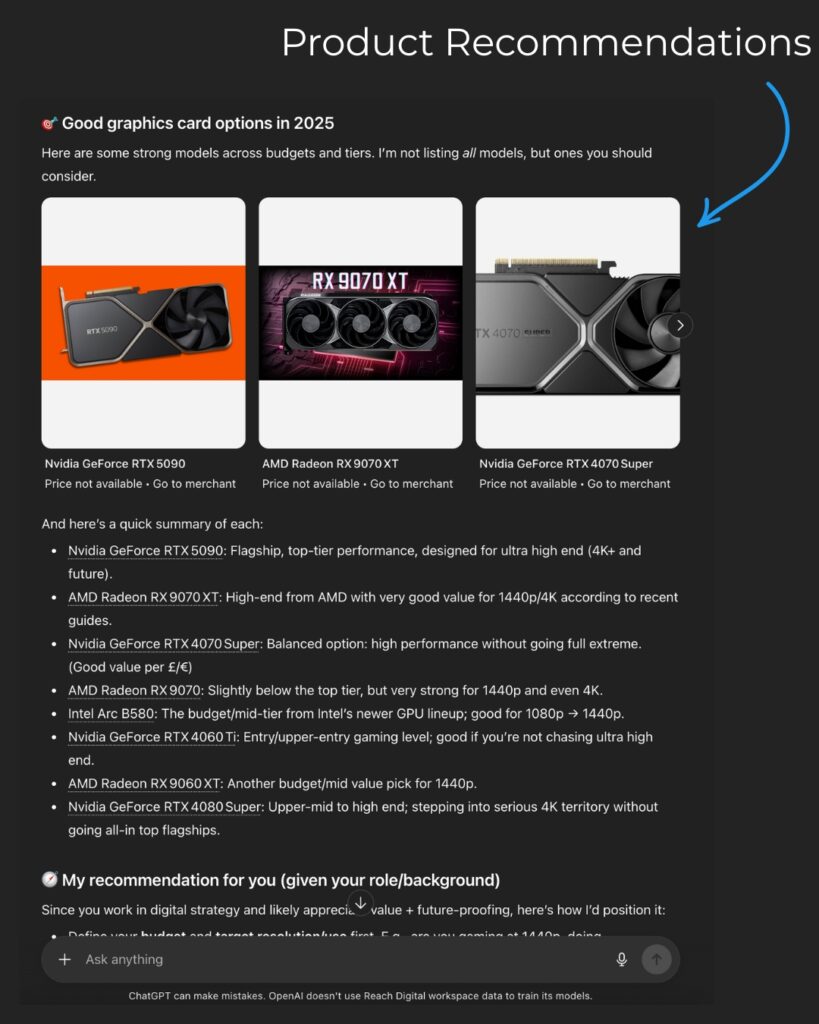
The Business Behind the Browser
OpenAI often talks about its big mission: building artificial general intelligence. But a web browser isn’t really about that; it’s about business.
After raising billions from investors, the company now faces pressure to show real financial returns, and a browser with subscription-based features is a direct route to that.
Still, making money from a browser isn’t straightforward. If Atlas relies on ads, the traditional model, it risks cluttering the clean, AI-driven experience that’s supposed to make it special. As Forrester analyst Stephanie Liu notes, OpenAI will have to find a balance between revenue generation and keeping the user experience smooth.
And right now, that experience isn’t perfect. In testing, Atlas gave completely different responses to the same simple phrase, “yes, please”, depending on the situation. Little inconsistencies like that make it feel more like an early experiment than a polished online tool.
There’s another challenge too: only around 5% of ChatGPT users currently pay for a subscription, according to the Financial Times. For Atlas to succeed, that number will need to rise significantly, especially among business users.
Atlas’ Data Potential – and Privacy Questions
Beyond subscriptions, Atlas could become a data goldmine for OpenAI.
AI systems thrive on scale, and Atlas has the potential to observe something incredibly valuable: how humans use the web, the way we shop but also how we search. If AI can learn to complete these tasks for us, its usefulness grows exponentially.
But, that raises privacy concerns. As Liu notes, users who value anonymity may see Atlas as too risky, especially if its data collection practices remain unclear.
Is Atlas Really Coming for Google?
No discussion about browsers is complete without mentioning Google Chrome. Chrome is so dominant that regulators worldwide have begun investigating its market power. Breaking into this space is no easy task.
Meanwhile:

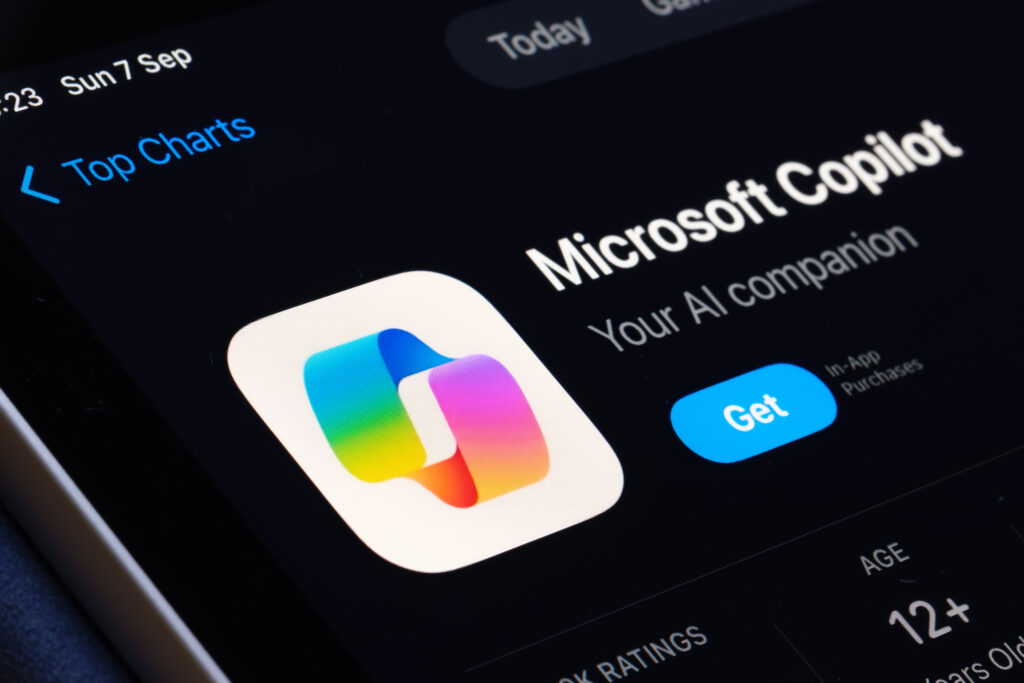
The browser space is progressively becoming an AI battleground.
When ChatGPT first launched, some called it the “Google killer.” So far, Google remains firmly standing, but Atlas introduces a fresh threat.
Erik Goins, founder of Flywheel Studios, explains it well: Google’s strength is acting as the middleman between you and the websites you need. ChatGPT removes the middleman entirely. Instead of searching “Hotels in Colchester” you simply ask ChatGPT, and it provides the answer directly.
For small businesses, this raises a critical question:
If AI assistants stop showing traditional search results… how will customers find you?
Your SEO strategy may need to evolve sooner than you think.
Is ChatGPT Atlas Right for You?
Use Atlas if:
You already rely on ChatGPT daily and want that experience embedded directly into your browsing.
You’re a small business owner who can benefit from fast research, summarisation, price comparisons or admin-style tasks.
You’re willing to pay for a ChatGPT subscription, because that’s where the real value is.
You want an early advantage in adapting your workflow to AI-first browsing.
If you need something that works perfectly every time, feel unsure about how your data might be used, rely on Chrome’s tools to get things done, or simply don’t want to sign up for yet another subscription, it might be worth waiting a little longer.
Final Thoughts
Atlas hints at a fast-paced future, one where browsing becomes more like having a personal assistant handle everything for you. It’s clever and undeniably full of potential. But it’s also in its early days, glitchy, and clearly designed to nudge users toward paid plans.
When using Atlas more broadly, I did still run into a few moments that reminded me it’s in its early stages. Messages like “Messages limit reached” “No available models support the tools in use” and even “You’ve hit the free plan limit for GPT-5” appeared occasionally. They’re not unusual for AI tools at this stage, but they do highlight that Atlas is still evolving and that its more capable features are tied to paid plans.
Will it eventually challenge Google’s dominance? Will people accept a pay-to-browse model? Will privacy concerns push users away from it?
For now, It’s too soon to tell.
What is clear is that if AI-powered browsing becomes the ‘norm’, it will reshape how customers find, research and choose businesses online. For businesses, that makes strong, future-ready SEO more paramount than ever, ensuring your brand stays visible no matter how search continues to evolve. If you want to stay ahead of that shift, we can help you build a strategy that keeps your business discoverable in an AI-driven world, and if you’d like to see this new style of browsing in action, you can give Atlas a try yourself by clicking here.

About the author
Isabella Last
Content Specialist at Reach Digital
Did you find this article useful? Share it with a friend or colleague

